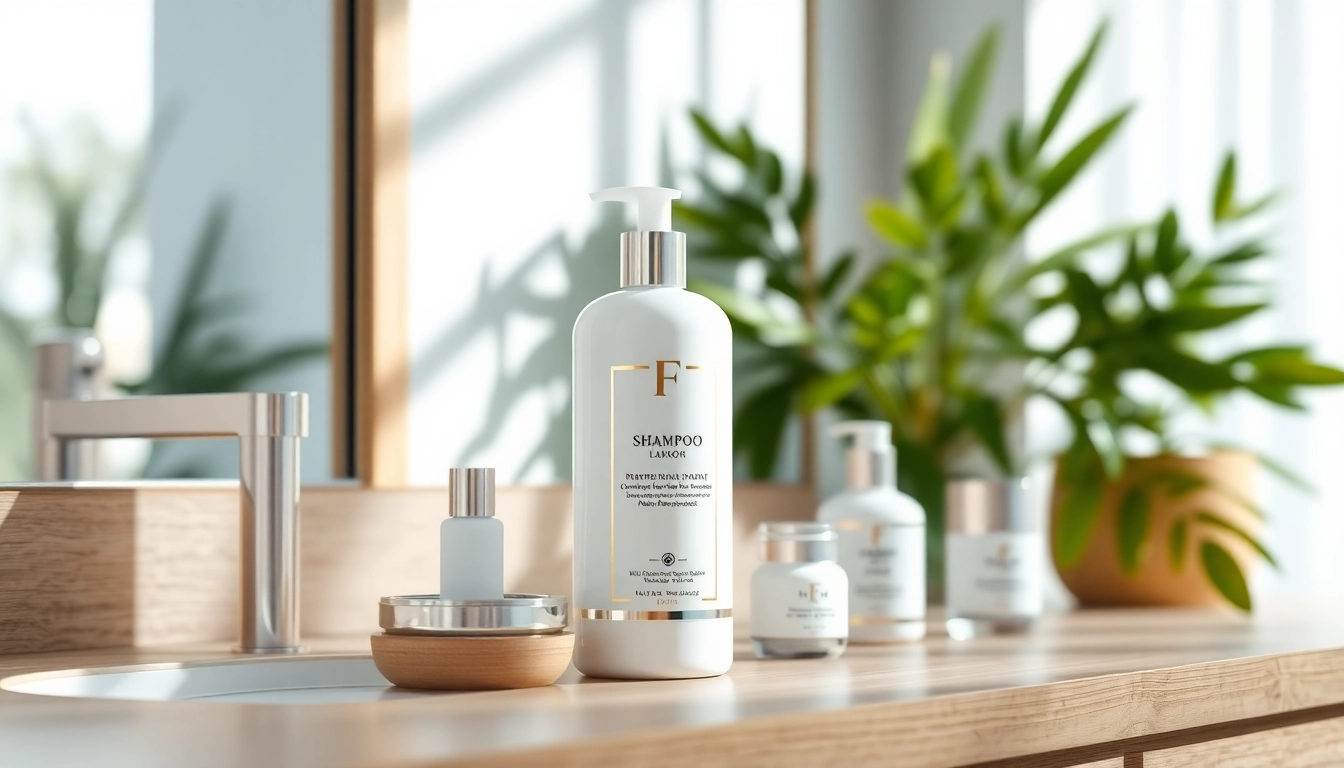Understanding Hair Loss: Causes and Impacts
Hair loss is a common condition that can affect individuals of all genders, ages, and ethnic backgrounds. While it is often perceived as a cosmetic issue, the implications of hair loss can deeply affect one’s emotional well-being and self-image. Understanding the underlying causes and impacts is essential for finding effective treatments, including the shampoo best for hair loss.
Common Reasons for Hair Loss
Hair loss can arise from a variety of factors, which can broadly be categorized into genetic, medical, and environmental influences. Genetic predisposition—also known as androgenetic alopecia or male/female pattern baldness—is by far the most common reason. Other medical conditions such as alopecia areata, thyroid disorders, and scalp infections can contribute significantly to hair thinning and loss.
Additionally, lifestyle choices like a poor diet, excessive stress, and exposure to harmful chemicals can exacerbate hair loss. Hormonal changes, particularly during pregnancy and menopause, can also lead to temporary or permanent hair loss. Understanding these causes is the first step toward treatment and recovery.
Psychological Effects of Hair Loss
The psychological effects of hair loss can be profound. Individuals often experience feelings of embarrassment, anxiety, and low self-esteem. Research indicates that hair loss can lead to depression in some cases, significantly impacting interpersonal relationships and overall quality of life. Understanding the emotional aspects of hair loss promotes a compassionate approach to those affected and emphasizes the importance of effective solutions.
How Hair Loss Affects Confidence
For many, hair is tied closely to identity and self-expression. Consequently, experiencing hair loss can shatter personal confidence. People may feel judged, stigmatized, or underestimated based solely on their appearance. Fortunately, recognizing this correlation between hair loss and self-esteem is crucial for developing strategies to address both the physical and emotional aspects of the issue.
Shampoos for Hair Loss: What to Look For
When searching for a shampoo that addresses hair loss, it’s crucial to understand what ingredients are most effective, how to choose a suitable product based on individual hair types, and how pricing can influence decisions.
Key Ingredients in Hair Loss Shampoos
The effectiveness of hair loss shampoos often hinges on their active ingredients. Some of the most beneficial components include:
- Biotin: Vital for keratin production, biotin supports hair health and growth.
- Caffeine: This stimulant has been shown to invigorate hair follicles and enhance growth.
- Ketoconazole: A powerful antifungal agent, it can also prevent hormonal-related hair loss.
- Saw Palmetto: This natural ingredient is thought to inhibit dihydrotestosterone (DHT), a leading cause of hair loss.
- Nettle Extract: Rich in vitamins and minerals, nettle supports circulation and promotes healthier hair growth.
It’s essential to read labels and seek products with clinically proven ingredients to ensure efficacy.
How to Choose the Right Shampoo for Your Hair Type
Choosing the right shampoo goes beyond targeting hair loss. Different hair types require specialized attention:
- Fine Hair: Lightweight shampoos that add volume without weighing hair down are ideal.
- Curly Hair: Opt for moisturizing formulas that define curls while preventing frizz.
- Dry or Damaged Hair: Look for repairing shampoos with nourishing oils and proteins.
Understanding your unique hair type is crucial in narrowing down choices and finding a shampoo that best meets your needs.
Pricing Insights: Affordable vs. Premium Options
Budget is another critical factor when selecting a shampoo. While premium options may offer high-quality ingredients and proven formulations, many affordable shampoos can be effective as well. It is often beneficial to read reviews and compare active ingredients rather than solely relying on brand names. Personalized testing—with a trial of both budget and premium shampoos—may reveal what works best for your hair loss concerns.
Top Picks: The Shampoo Best for Hair Loss
Identifying the best shampoos can significantly expedite the journey towards regrowing hair. Here’s a comparative review of some leading products:
Comparative Review of Leading Products
When examining products, it’s integral to look at factors like ingredient efficacy, price, user reviews, and brand reputation. Here’s a brief overview of some popular options:
- Neutrogena Anti-Residue Shampoo: This affordable option helps clear scalp buildup, addressing one potential cause of hair loss.
- Pura D’or Original Gold Label Anti-Thinning Shampoo: Known for its natural ingredients, it’s designed to strengthen hair and reduce thinning.
- Shapiro MD Shampoo: This clinically formulated shampoo claims to block DHT and promote regrowth for both men and women.
- Luxeva 3-in-1 Imperial Caviar Anti-Aging System: Featuring a blend of luxe ingredients, it provides comprehensive support for not just loss, but overall hair health.
User Testimonials: Real-Life Experiences
Personal stories from users can provide valuable insight into the efficacy of various shampoos. Reviews often highlight aspects like texture improvement, scalp health, and visible hair growth. After using products for various lengths of time, many users provide feedback regarding not only the physical results but also changes in their confidence levels.
Before and After: Success Stories
Many brands display testimonials showcasing before-and-after photos that illustrate the effectiveness of their products. Such visual evidence can be compelling for potential users, as they illustrate realistic expectations for hair restoration and the effectiveness of chosen treatments.
Integrating Shampoo into Your Hair Care Routine
Adopting a consistent hair care routine is vital for seeing results. Just using the right shampoo isn’t enough; it should be complemented by healthy practices.
Frequency of Use: Best Practices
Most hair loss shampoos can be used as frequently as every other day or as recommended on the label. However, it’s essential to monitor your scalp’s reaction. Over-washing can lead to dryness and irritation, whereas under-washing can cause build-up. Adjusting usage frequency based on individual hair conditions is a fundamental step in any hair care regimen.
Complementary Products for Better Results
Incorporating complementary products can enhance results. Consider integrating a conditioner specifically designed for hair loss to moisturize and protect strands. Leave-in treatments, serums, and essential oils can also support hair health and promote an optimal environment for growth.
Nutrition and Lifestyle Changes for Hair Health
Nutrition plays a fundamental role in hair health. Consider adopting a balanced diet rich in vitamins like A, E, D, and B, as well as minerals such as iron and zinc. Regularly consuming foods with omega-3 fatty acids can also stimulate hair growth. Additionally, reducing stress through meditation, exercise, and adequate sleep can contribute to overall hair health.
Measuring Success: Evaluating Shampoo Effectiveness
Evaluating the effectiveness of a hair loss shampoo can be done through both tangible and intangible measures. Monitoring hair growth and overall health can help establish the shampoo’s viability.
Signs Your Shampoo is Working
Signs that a hair loss shampoo is working can include a gradual reduction in hair shedding, visible regrowth, thicker hair shafts, and healthier scalp conditions. Noticing these changes may require patience, as results can take weeks to months to manifest.
When to Consult a Specialist
If substantial hair loss persists despite using shampoos and making lifestyle changes, consulting a healthcare professional or dermatologist is critical. They can determine if there are underlying health issues contributing to hair loss and may recommend more intensive treatment options.
Long-term Solutions for Sustainable Hair Growth
Long-term solutions for hair growth may include prescription medications, topical treatments, or even surgical procedures such as hair transplants. A comprehensive treatment plan developed with a medical professional can yield sustainable results.



